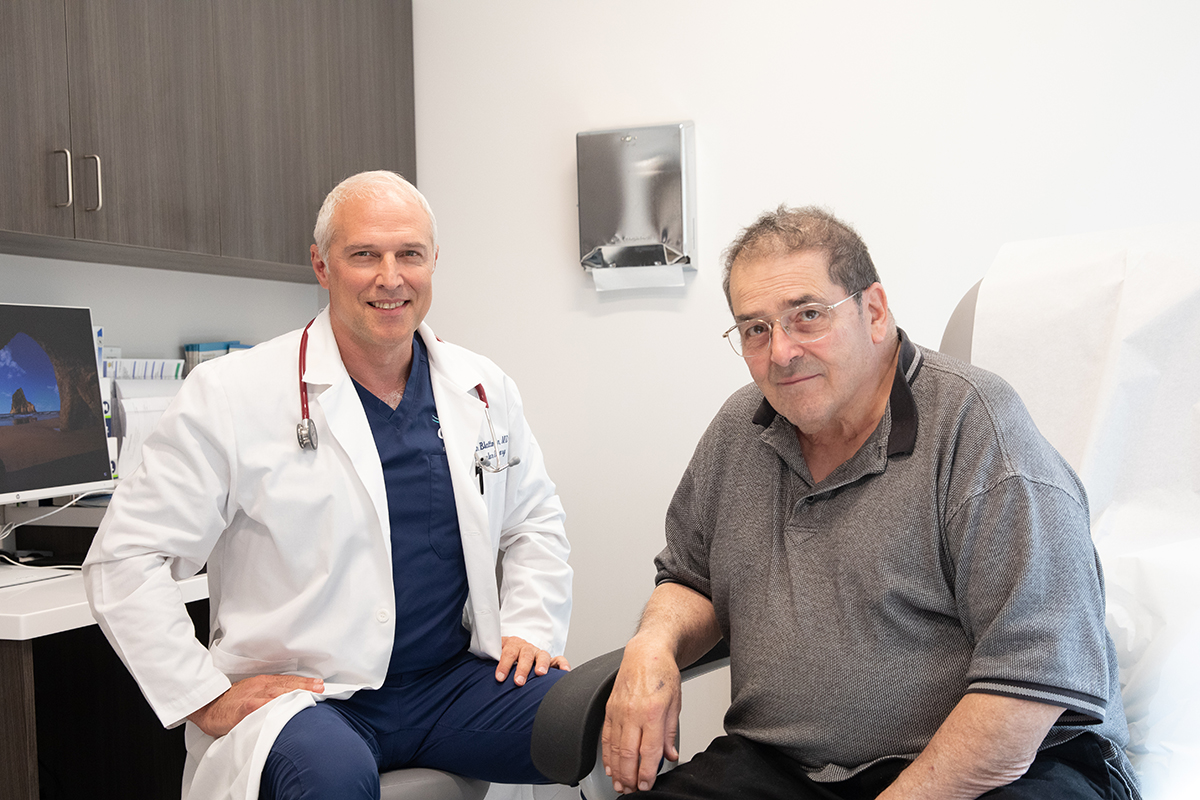
A father and son conversing on their sofa in a sunny living room.
The goal of all Yale New Haven Health providers and caregivers working with children, adolescents and their families is to ensure that every individual has the services and support they need to thrive and reach their fullest potential.
Regretfully, however, many children and adolescents in the United States are experiencing considerable challenges.
“Children and adolescents are struggling more than ever before with more severe and prolonged mental health needs,” according to Linda Mayes, MD, chair of the Yale Child Study Center and chief of Child Psychiatry for Yale New Haven Children’s Hospital (YNHCH). “All of us in health care have an imperative to be more innovative in how we meet these needs, and in ensuring that families have access to the care that they need.”
Prior to the pandemic, one in five children under age 18 faced a mental health issue needing intervention. These numbers have dramatically increased since the pandemic with a near doubling of the rates of depression, suicidality, anxiety and trauma in children and adolescents, Dr. Mayes said.
Specific factors burdening children and adolescents today include the increase in violence around the world, the pressures of social media, and aggressive behaviors such as bullying.
“It's very important for parents to monitor their child's mental health, because it can be very dangerous if certain symptoms like anxiety and depression are left unattended,” said Shanthi Mogali, MD, Northeast Medical Group, chair of Psychiatry at Lawrence + Memorial (L+M) Hospital, and assistant professor of psychiatry, Yale School of Medicine. “More than a million emergency room visits are attributed annually to children suffering from a mental health disorder, and children, oftentimes, do not know how to process their feelings, and this can lead to isolation and despair.”
How can a parent know if their child is struggling with a mental health issue? Dr. Mogali says some of the most obvious signs can include:
- Trouble sleeping
- Changes in eating habits
- Mood changes
- ‘Clingy’ behaviors
- Trouble in school
- Withdrawing from activities they once enjoyed
“Children often present with physical symptoms, yet sometimes it's all related to whatever they’re feeling emotionally,” Dr. Mogali said. “This is why it’s important to check in with a mental health provider or a primary care provider to help determine if there is a psychological component to their symptoms.”
How do I talk to my kids about the news?
Dr. Mogali also encourages parents to talk to their children, including discussing difficult topics in developmentally appropriate ways. If, for example, a child is upset about something that has happened in school or appeared on social media, it is best to talk about it and offer reassurances.
“Reassurance is always important,” Dr. Mogali said. “Older children will have more complex ideas about what it means to be living in a world of gun violence or bullying. They may have more thoughts and questions, so it is usually OK to have more elaborate conversations with them. We always want to validate their feelings and reassure them that, as adults, we're going to keep them safe.”
The easiest way to know how to talk to your children is to listen carefully to what they already know and what questions they are asking. “If you are open and listening, that alone will help make a difficult situation a little bit better,” Dr. Mogali said.
Mental health help for children
To help address what some mental health experts have called a “national emergency” in child and adolescent mental health, YNHCH has participated in training for hospital affiliated doctors and community pediatricians in a partnership with The Reach Foundation. YNHCH is using a variety of scientifically proven mental health care strategies to empower providers with additional tools for early diagnosis and treatment for many mental health issues impacting children.
“I encourage parents to work closely with the people in your child’s life and to listen carefully if they have information about how your child is behaving,” Dr. Mogali said. “Teachers, coaches, therapists and other family members may be able to offer insights that even parents are not aware of, and listening to others can sometimes help with early diagnosis of a mental health issue or disorder.
“Early diagnosis, as with many types of disease, can be the best way to ensure that you and your child can work together to address a mental health issue before it reaches a crisis stage.”
Dr. Mayes noted that, across all of Yale New Haven Health, emergency departments are always ready to care for children in crisis. Dr. Mogali noted, for example, that L+M has a specific Pediatric Emergency program operating each day from 3-11 pm.
Other services geared toward children are available through the Children’s Day Hospital Intensive Program and the Children's Psychiatric Inpatient Service (CPIS) at YNHCH, which combines resources with faculty of Yale School of Medicine departments of Child Psychiatry (Yale Child Study Center) and Pediatrics. Additionally, outpatient assessment and treatment services for children and adolescents are provided through the Child Study Center both in person and virtually.
In a mental health emergency, you can call 911 or 211, a free, confidential line for mental health help in Connecticut. If you or someone you know is in crisis, you can also call the National Suicide Prevention Lifeline at 988.





